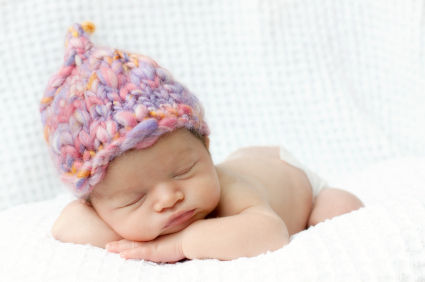…like a baby?
Yawning again? It’s not daylight savings time, promise! In fact, it may very well be your mood, at least in part.
I’ve been writing about sleep (or lack thereof) and menopause since first starting this blog in 2008. Click on the link and you’ll see posts about causes, solutions, pillows, sheets, you name it. And yet, I wouldn’t be surprised if sleep eludes you from time to time as much as it does me. More importantly, I imagine that some of you in the Flashfree universe don’t sleep much at all.
What gives?
Anxiety. And depression. That’s what. At least according to new data appearing in the online version of Maturitas journal. This time, researchers in search of some answers about sleep difficulties in midlife examined medical records of 237 women in peri- and postmenopause, all of who were on average, 52 years old. More specifically, they delved into answer that the women had provided to previous questionnaires about their life quality (based on physical and mental health, life satisfaction and social involvement) and degree of anxiety and/or depression. Within these questionnaires were measures of menopause-specific symptoms as well as sleep issues, including difficulty falling asleep and sleep that was non-restorative.
Overall, and unsurprisingly, about 36% of the women expressed difficulty falling asleep and 44% nonrestorative sleep during at least half the week. Almost a third experienced both issues at least 3 nights a week. Yet, sleep difficulties were less associated with menopausal symptoms (night sweats, hot flashes, nausea, dizziness, muscle/joint pain, headaches) and rather, with psychological statse of being. Indeed, trouble falling asleep seemed to be mostly correlated with anxiety, while non-restorative sleep was linked to depression.
This is not the first time that researchers have linked mood disorders to sleep issues. And although the progression is not entirely clear, i.e. the time course over which depression and anxiety develop during the transition to influence sleep, what is clear is that treating the underlying issues may ultimately help improve sleep quality.
What about you? Do you find that feeling blue or anxious tends to rob you of much needed zzzs? Or are you more convinced that waking up drenched in sweat is what is messing with obtaining restorative sleep?
Inquiring minds…








It doesn’t surprise me. Mild depression and anxiety plagued me through out my late 40’s, but I would never had called it that. Much easier to say, oh it’s menopause. Mid-life angst. I went through a lot of ups and downs, having teens in puberty didn’t help – the Hot Flash Clash. What is important is self-love, not giving into the harsh critical voice that trashes us and keeps us chained to negativity.
My own journey through mid-life was more of an emotional upheaval than any physical challenges (mild night sweats, the odd hot flash). I blogged about it at http://www.msmenopause.blogspot.com and then put it together in book form, The Tao of Turning Fifty, recently released on amazon.com.
I’m convinced that a lot of good came out of my transition into my fifties, and I see it as an initiation into wisdom of a sort.
at 57, it may be all downhill, but I’m enjoying the ride
I love this comment Jennifer. The ‘Hot Flash Clash’ characterizes so many of the things that plague and intersect in midlife. And I agree – it’s an initiation. The ride can only get better….Thanks!
Sleep, anxiety, ADHD and depression have always been wrapped up in me. JUts blogged about it at http://www.coreyjf.com/2012/03/filed-under-tmi-im-not-crazy-im-just-a-little-unwell/
Pretty nice post.
This is really my very first time here, great looking website. I discovered so many austin brain injury attorney interesting things inside your website.
I like this post.
I wanted to thank you for this special read. I definitely savored every little bit of it and I have you bookmarked to check out new stuff you post.
Thanks for the informative writing. Would mind updating some good tips about it. I still wait your next place.